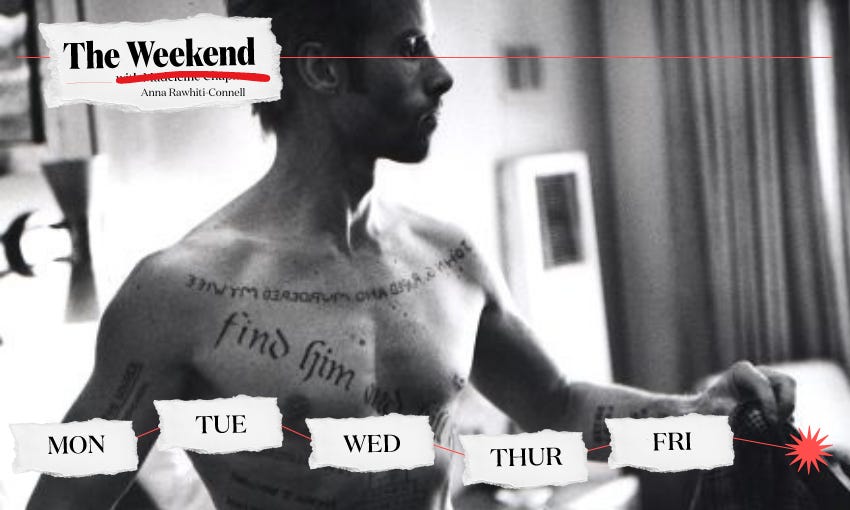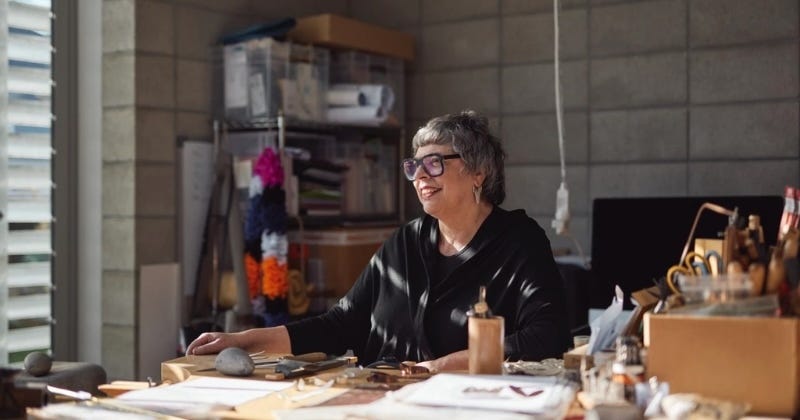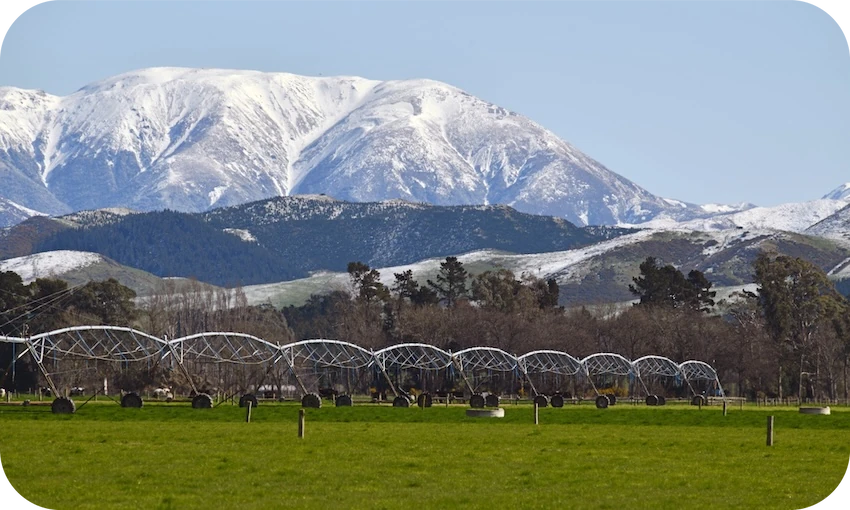Remembering the beloved, the cursed and the damned
Anna Rawhiti-Connell subs in for Madeleine Chapman and reflects on memory and the role it plays in writing.
Kia ora and welcome to The Weekend with Anna Rawhiti-Connell, in partnership with Kiwi Property.
The other day I spent 10 minutes searching random words to try and remember the name of a book and a writer that were utterly crucial to how I thought about writing and internet culture in 2021. All I could remember was “Twitter, writer, London Review of Books.” Thankfully, that surfaced the canonical text I was thinking about, Patricia Lockwood’s No One is Talking About This, but it is still bugging me that I could not pluck that recollection from my own brain and instead had to rely on something I already feel too reliant on.
My memory is often quite terrible, and it genuinely feels as if it has gotten worse over the last few years. I don’t know if it’s my age and stage, two years of doing fast-turnaround news curation, or a particular blanking of the lockdown years.
As a writer, it’s quite unhelpful to have a mind that feels like it has a few more holes in it than it used to, but it’s also made me think a lot about how we remember things, how we write about the past and how the internet and social media function as fallible extensions of our individual and collective memories.
I instantly drew a line between my writing this week about how utterly damned Facebook now feels and Lyric Waiwiri-Smith’s story, Remembering Suzanne Paul’s ‘cursed’ Māori Village.
Coincidentally, both took us back to 2004 when Facebook and Paul’s extremely weird venture were launched. Lyric, who joined us as a staff writer two weeks ago, was a toddler when Paul’s “tiki-tacky” cultural village, Rawaka, opened (and closed). She has essentially pieced together a view of it using the internet and the journalism of time as collective cultural memory. I talk to her about that more in this week’s episode of Behind the Story.
The comments from readers on my own story served as a good reminder of what Facebook used to be and the perils of relying on big tech platforms as a proxy for social connection and a repository for our memories.
Others’ ability to draw on memory and paint fresh pictures of the past has been a dominant feature of writing on The Spinoff this week and is again this weekend.
Duncan Greive’s defence of shoebox apartments in the wake of the government’s announcement about overriding minimum dwelling size standards encouraged some healthy debate in the comments section (all good, robust stuff). It’s also quite a moving recollection of Greive as a young Dad, trying to create a sense of home and place and finding it in a tiny, inner-city apartment.
This weekend, we have two essays for you that also draw heavily on memory. One revisits the writer’s hometown, while the other, our political history and a beloved and complex political figure. Both are highlighted below, and I commend them to you as great weekend reads.
Renting that doesn't suck: Resido
Resido apartments allow pets, come with whiteware and have access to a 24/7 gym, rooftop BBQ area, media room, resident lounge, co-working space and more. These built-to-rent apartments are conveniently located next to Auckland's Sylvia Park. One, two and three bedroom apartments are available from $595pw. Book your tour, here (sponsored)
Behind the Story:
Lyric Waiwiri-Smith started at The Spinoff as a staff writer two weeks ago and has three stories under her belt already. Lyric joined me on Behind the Story this week to discuss her Suzanne Paul story, whether the internet truly never forgets, celebrity profile writing, her love of pop culture, and live blogging while trying to buy tickets to Taylor Swift’s Eras concert in Melbourne.
Sunday Essay: The Lange I knew
On the 40th anniversary of the election that swept David Lange into power, Ross Vintiner, Lange’s press secretary from 1983 to 1988, reflects on one of the most beloved – and complex – figures in New Zealand politics.
“I first met David Lange in Siberia. Not the Russian region. Down a squeaking corridor in an annex to the old parliament buildings, sat a colossus: the deputy leader of the New Zealand Labour Party. David was some distance from his leader as if separated by the Urals from a purgatory place for dissidents. This was “Siberia”. It was 1981, and David was out of sorts with the determined Labour leader Bill Rowling, having ousted Bill’s mate Bob Tizzard two years earlier as deputy leader, and just failing to do the same to Bill late in 1980.”
‘That's a life changing project for me, creating a taonga for a whole community.’
Transitioning from a studio-centred art practice to one built around large-scale public sculpture and community projects has afforded Dr Areta Wilkinson new opportunities. Now she's creating collaborative works of art that cross disciplines, transcend time, and bring visibility to cultural narratives and knowledge. Read more about Dr Wilkinson's creative practice on The Spinoff now.
From fish to flour to feta, snow feeds us all
Unless you live around it or enjoy skiing, I’m not sure many of us think about snow that often. Most of us probably don’t think about it in relation to the food we eat. Enter Shanti Mathias and her highly recognisable approach to joining the dots and thinking deeply about things we take for granted. As she writes in this new What’s Eating Aotearoa feature, “the South Island’s snow and ice act as a battery that powers our food systems, by storing water to ensure the rivers can keep flowing and the soil stay hydrated year round. So what does it mean when all that frozen water is melting?”
The stories Spinoff readers spent the most time with this week
Duncan Greive's recollection of his time living in a shoebox apartment and why he's glad they’re coming back
Shanti Mathias's deeply researched and colourful feature about whether Sandringham’s South Asian flavour can survive gentrification
My story on the decline of Facebook as a useful social media network and the platform's problem with fake news and AI art "slop"
Shanti Mathias investigates why so many nurses move to New Zealand – but don’t plan to stick around
Alex Casey has some handy advice on how to protect your family against the ‘pornographic’ threat of g-strings
More recommended reads (and listens) for your weekend
A beautifully written and lively essay from Venetia Sherson on revisiting her hometown of Te Aroha
Even if you haven’t followed Shortland St in a long time, I recommend Tara Ward’s hilarious obituary for Leanne Miller. I hope I can convince her to write mine one day. (To be clear, the fictional character died, not the actor, Jennifer Ludlum).
Please don’t make crime illegal: An open letter to the police minister penned by
Joel MacManusGabi Lardies picks her five favourites from the newly opened inaugural Aotearoa Contemporary exhibition at the Auckland Art Gallery Toi o Tāmaki.
Bryer Oden takes us on a tasting tour of Wellington’s best sandwiches
A classic Spinoff format returns after a brief hiatus with Madeleine Holden’s Hear me out: You should drive sitting bolt upright
Claire Mabey uses our “argument with myself” format to its full extent tackling the thorny issue of whether you can separate the art from the artist.
Congratulations to Claire on publishing her first book, The Raven’s Eye Runaways, which Hera Lindsay Bird has reviewed for us.
Juggernaut has deservedly been sitting at the top of the Apple and Spotify podcast charts for a few weeks now, and the penultimate episode was released this week. Listen here or wherever you get your podcasts.
The episode is focused on the homosexual law reforms of the mid-80s. As Toby Manhire details, Fran Wilde, the Labour MP who led the historic bill through parliament then, thinks the legislation would struggle to survive in today’s social media age.
Reader feedback of the week
“It wasn’t me but in c. 1999 as a child I told Taine Randell (when he was All Blacks captain) that he sucked. So this Lorde heckler must similarly experience late night flashes of regret and shame for the casual bullying”
“The quote about cars and emergency motels being smaller than ‘shoebox apartments’ is a spurious argument. Neither of these is designed or intended to be a home where people can settle and become part of a community. Yes, it is true that people are often in such places of shelter for far longer than the intended, temporary accommodation. Let’s not get caught up in this, “at least it’s better than…” Let’s hear Chris Bishop say what safeguards will be in place to make these healthy – as others here have described.”
“Hera is right – model reading, stack your shelves with books, let them read anything for pleasure and don’t buy into the latest nonsense from educational experts. Our kid’s books are now being enjoyed by the next generation and their grandparents. There’s nothing more satisfying than bellowing out EEEEOWWFITTTZZZ when Scarface Claw scares the shit out of all the dogs (and the odd child) in Lynley Dodd’s “Hairy Maclary.”
Thanks for reading. Madeleine will be back with you next week,
— Anna Rawhiti-Connell















A Bouquet for Hera's attempt to taitoko thd cause of reading *ir anything to displace the dopamine-drenched screen). But one line about medieval torture was seriously harmful. J told the Abuse in Faith Institutions about the enduring PTSD-like effects of the stories and iconography of the RC church and in particular a book on "Lives of the Saints" written for children with details of torture martyrdom of 16th century priests from Italy to America to to Japan. Trigger warnings have good reasons.